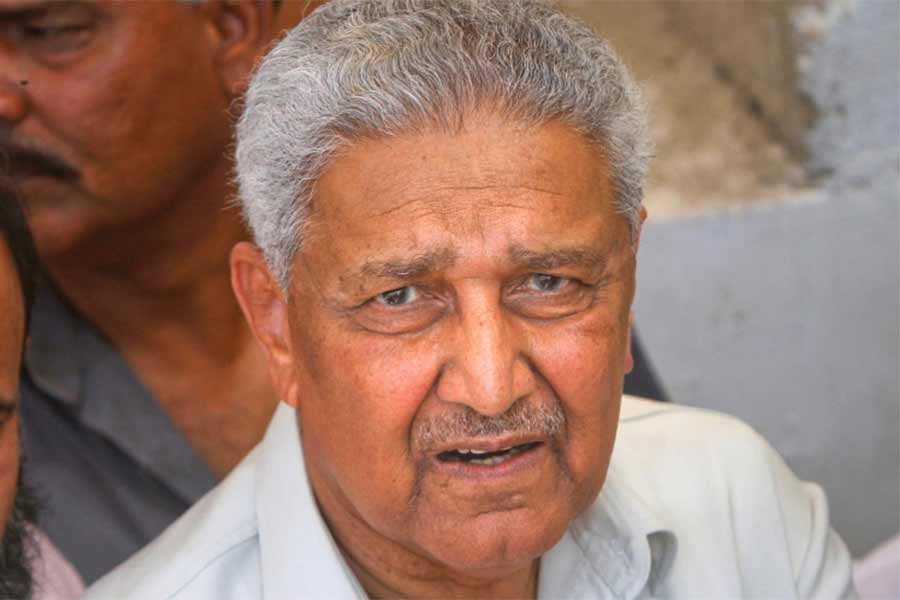‘Father of Pakistan’s nuclear programme’ Abdul Qadeer Khan dies

Published :
Updated :

Abdul Qadeer Khan, lionised at home as the father of Pakistan’s nuclear programme, died on Sunday at age 85.
The nuclear scientist was admitted to Khan Research Laboratories Hospital on Aug. 26 after testing positive for COVID-19 and was later moved to a military hospital in Rawalpindi.
He was at the centre of a nuclear proliferation ring, reports Reuters citing state-run Associated Press of Pakistan.
“He was loved by our nation because of his critical contribution in making us a nuclear weapon state,” Pakistan’s Prime Minister Imran Khan on Twitter. “For the people of Pakistan, he was a national icon.”
But AQ Khan, no relation to the prime minister, also confessed to being at the core of an operation that sold nuclear secrets to North Korea, Iran and Libya.
Analysts and United Nations officials have said his illicit network, which specialised in helping countries skirt international sanctions, created the greatest nuclear proliferation crisis of the atomic age.
After a confession on national television to his involvement in selling nuclear secrets, Khan was pardoned by then-president Pervez Musharraf.
He remained under house arrest for years in his palatial Islamabad home, overlooking the foothills to the Himalayas, surrounded by armed guards and wildlife such as monkeys who spill over into the upmarket area from the nearby forested hill range.
In his confession, Khan said he acted alone without the knowledge of the state officials. Later he said he had been scapegoated.
Musharraf once described Khan’s admission of guilt, following a tip-off from the CIA, as the most embarrassing moment of his presidency.
Pakistan never let foreign investigators question Khan, saying it had passed on all relevant information about his nuclear proliferation, despite repeated calls for access by Western officials and the International Atomic Energy Agency.
Domestically, Khan is celebrated for helping the country catch up to archrival India in the nuclear sweepstakes.
Nine years ago Khan, who had a brief foray into politics, fondly recalled to Reuters working on Pakistan’s nuclear programme in the 1980s and how then military ruler General Zia ul-Haq kissed him on his forehead when significant progress was made.
“I want to bring change and help the people of Pakistan, as I did back in 1974 when India test-fired its nukes,” he said.
Pakistani President Arif Alvi tweeted on Sunday that Khan “helped us develop nation-saving nuclear deterrence, and a grateful nation will never forget his services in this regard.”
Prime Minister Khan said the scientist would be buried at Islamabad’s Faisal mosque, according to his wishes. Armed forces chiefs and political leaders would attend his funeral, the country’s interior minister said.


 For all latest news, follow The Financial Express Google News channel.
For all latest news, follow The Financial Express Google News channel.